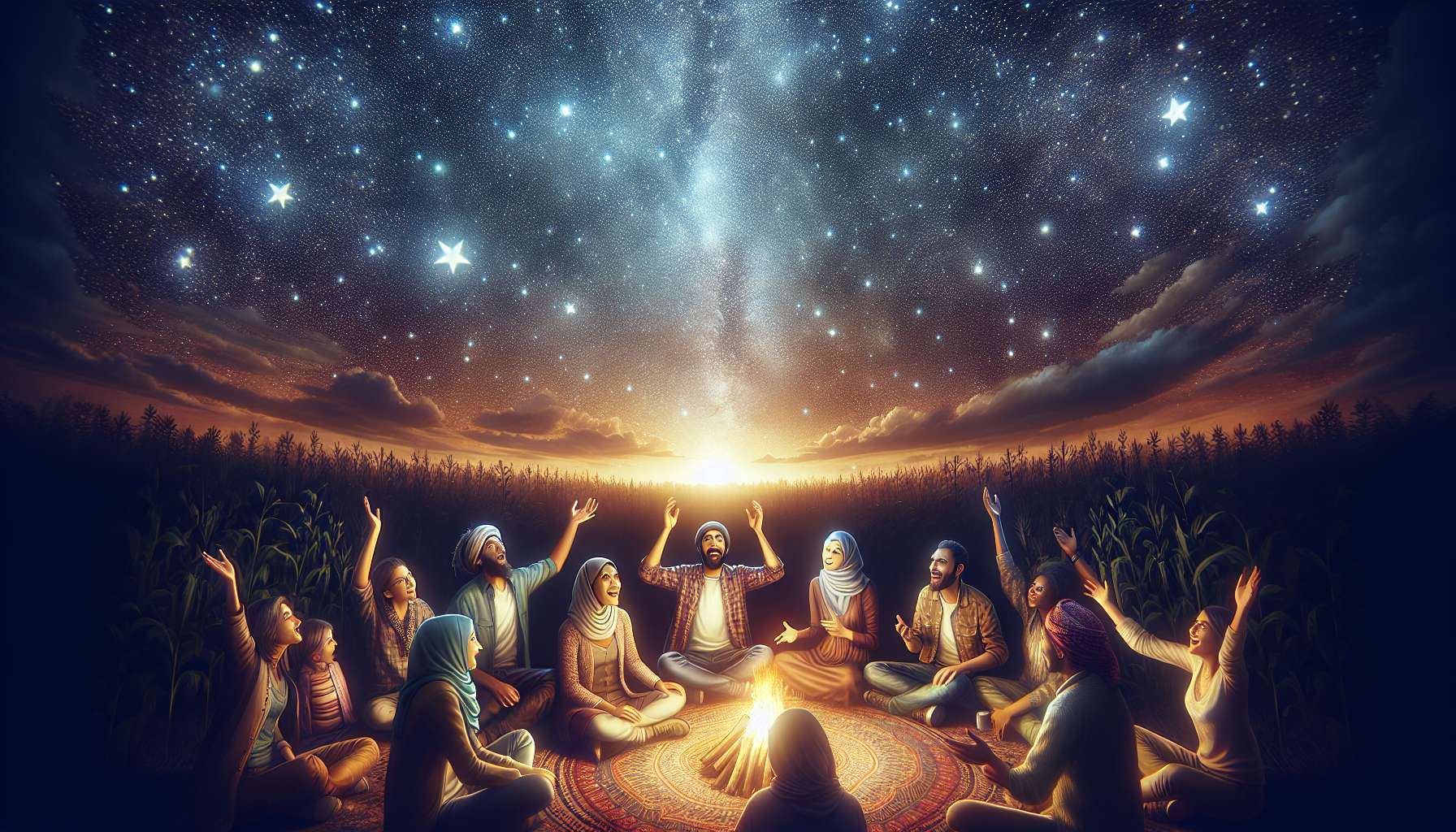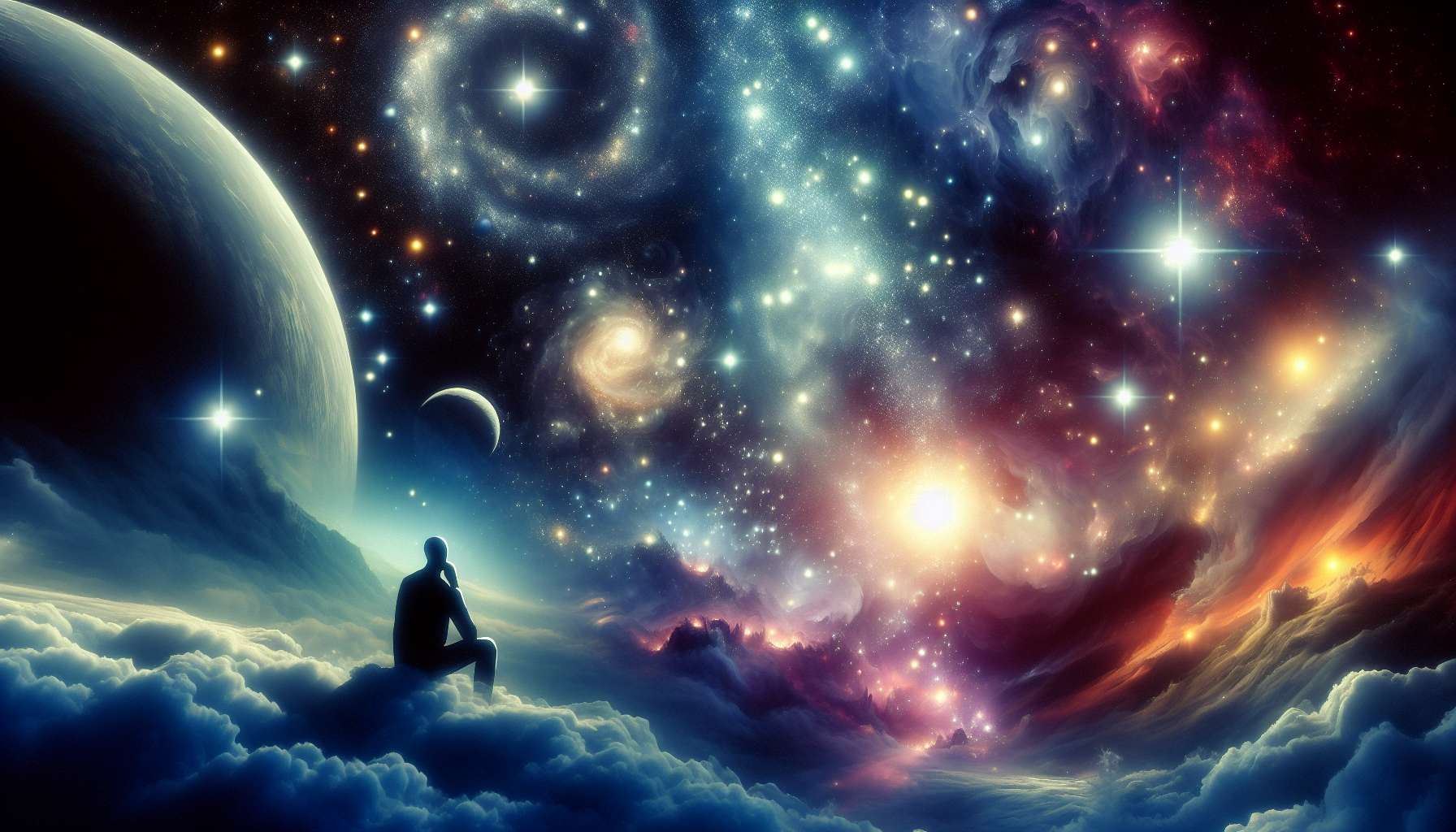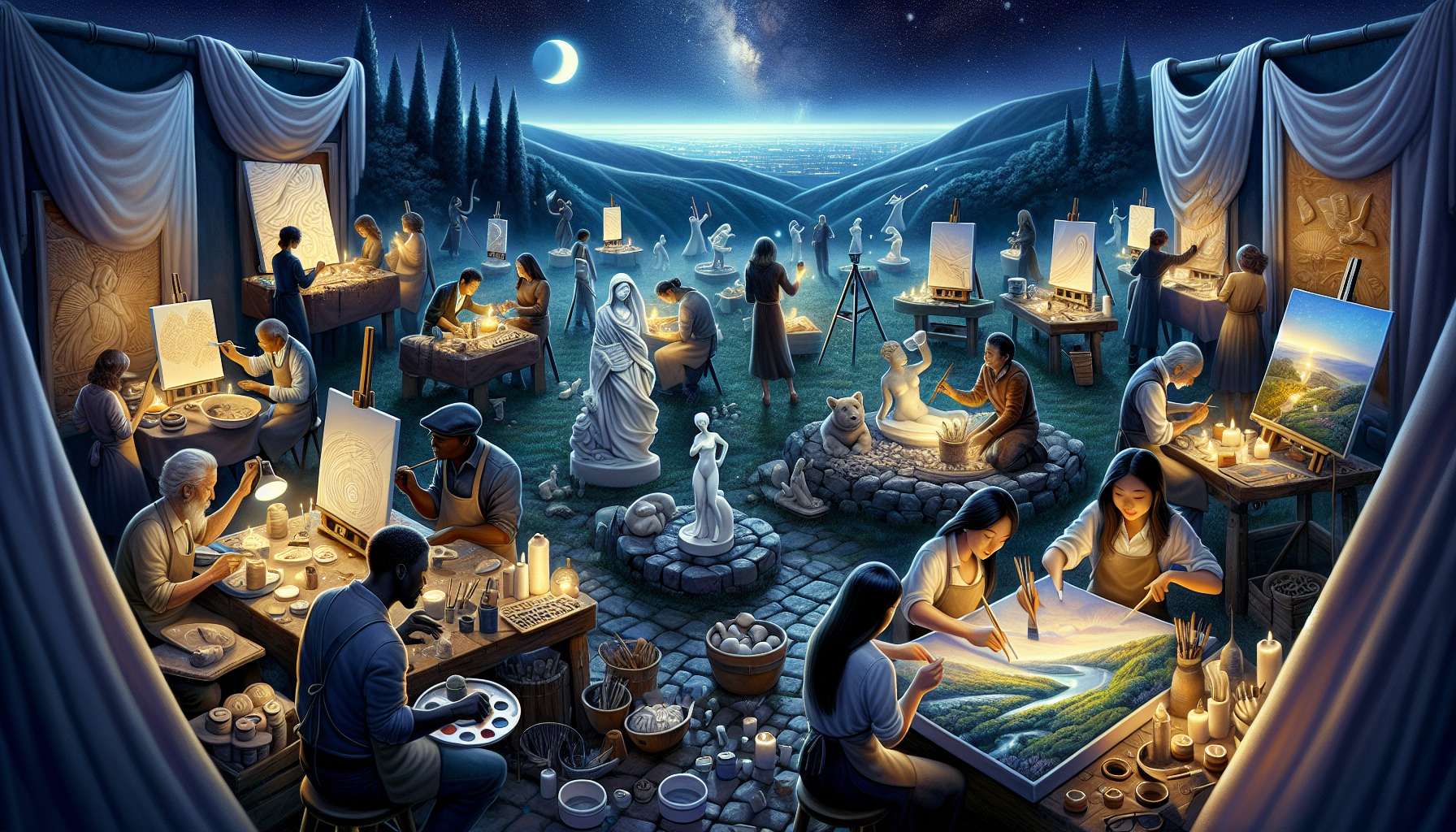Exploring Night Sky Narrative Moments
When we look up at the night sky, we are met with a vast expanse of darkness punctuated by twinkling stars, planets, and sometimes even the moon. The night sky has captivated humans for centuries, inspiring countless myths, legends, and stories. In this article, we delve into the fascinating world of ‘Night Sky Narrative Moments’ those magical instances where the celestial sphere becomes a canvas for storytelling, wonder, and discovery.
The Mystique of the Night Sky
From ancient civilizations to modern-day stargazers, the night sky has held a special place in the human imagination. The stars have been used for navigation, tracking time, and predicting seasonal changes. But beyond its practical applications, the night sky also serves as a backdrop for storytelling. Countless cultures have woven myths and legends around the constellations, giving them names and narratives that have been passed down through generations.
One of the most well-known examples of night sky narratives is Greek mythology, where the gods and goddesses were immortalized in the stars. The story of Orion the Hunter, for instance, is told through the constellation of Orion, with his belt and sword clearly visible in the night sky. These narratives not only entertained ancient peoples but also served as a way to explain the natural world and human behavior.

Stargazing as a Cultural Practice
Throughout history, different cultures have developed their own unique narratives around the night sky. In Aboriginal Australian culture, for example, the dark patches in the Milky Way are seen as a celestial Emu, with the stars forming its body. This narrative is used to teach important lessons and values to younger generations.
Similarly, in Chinese culture, the zodiac signs are derived from the positions of the stars in the night sky. Each sign is associated with specific personality traits and fortunes, shaping how individuals are perceived and understood within society. Stargazing, then, becomes not just a pastime but a way to connect with one’s cultural heritage and identity.
The Role of Astronomy in Night Sky Narratives
While many night sky narratives are rooted in mythology and folklore, modern astronomy also plays a significant role in shaping our understanding of the cosmos. Scientists use telescopes and other instruments to study the stars, planets, and galaxies, uncovering the mysteries of the universe.
One of the most famous examples of astronomy shaping night sky narratives is the demotion of Pluto from planet status to dwarf planet in 2006. This decision by the International Astronomical Union sparked debates and discussions among scientists and the general public, highlighting how our understanding of the night sky is constantly evolving.
Technology and Night Sky Narratives
In recent years, advancements in technology have made it easier for people to engage with the night sky in new and exciting ways. Mobile apps like Star Walk and SkySafari allow users to identify constellations, planets, and stars simply by pointing their phones at the night sky. This technology not only enhances our understanding of the cosmos but also brings the wonder of stargazing to a wider audience.
Additionally, virtual reality (VR) and augmented reality (AR) are being used to create immersive stargazing experiences. Users can put on a VR headset and be transported to different parts of the universe, exploring distant galaxies and nebulae as if they were actually there. This technology opens up new possibilities for storytelling and education, allowing people to interact with the night sky in ways never before imagined.

Night Sky Narratives in Popular Culture
The night sky has long been a source of inspiration for artists, writers, and filmmakers. Countless works of fiction have been set against the backdrop of the cosmos, using the stars and planets as a metaphor for human emotions and experiences. Films like “Interstellar” and “Contact” explore themes of space exploration, alien encounters, and the mysteries of the universe.
Literature, too, has drawn from the night sky for creative inspiration. Authors like Jules Verne and H.G. Wells have written stories that take place in outer space, imagining what life on other planets might be like. These narratives not only entertain readers but also encourage them to think about the bigger questions of existence and our place in the universe.
Expert Opinions on Night Sky Narratives
When asked about the significance of night sky narratives, Dr. Emily Smith, an astronomer and science communicator, had this to say: “Night sky narratives have been crucial in shaping how we understand the cosmos. They not only provide a cultural and historical context for astronomy but also foster a sense of wonder and curiosity about the universe.”
Dr. Smith goes on to explain that night sky narratives have the power to inspire young people to pursue careers in science and technology. By connecting scientific concepts with stories and myths, educators can make complex ideas more accessible and engaging, sparking a lifelong interest in astronomy and space exploration.
Common Misconceptions About Night Sky Narratives
One common misconception about night sky narratives is that they are purely mythical and have no basis in scientific fact. While it’s true that many stories about the stars and planets are rooted in folklore, these narratives often contain valuable insights into the natural world and human behavior.
Another misconception is that night sky narratives are outdated and no longer relevant in today’s modern world. However, as Dr. Smith points out, these stories continue to shape how we think about the cosmos and our place within it. By studying night sky narratives, we can gain a deeper appreciation for the interconnectedness of cultures and the enduring power of storytelling.
Conclusion: Exploring the Depths of Night Sky Narratives
As we gaze up at the night sky, we are reminded of the countless stories and myths that have been told about the stars and planets. From ancient civilizations to modern science, night sky narratives have played a vital role in shaping how we perceive the cosmos and our place within it.
By exploring the cultural, scientific, and technological aspects of night sky narratives, we gain a deeper appreciation for the beauty and complexity of the universe. Whether through mythology, astronomy, or popular culture, the night sky continues to inspire wonder, curiosity, and a sense of connection to something greater than ourselves.
To wrap things up, let us remember that the night sky is not just a canvas for storytelling but a window into the vastness of the cosmos. Each star, planet, and constellation has its own narrative to tell, inviting us to look up and wonder about the mysteries of the universe.




